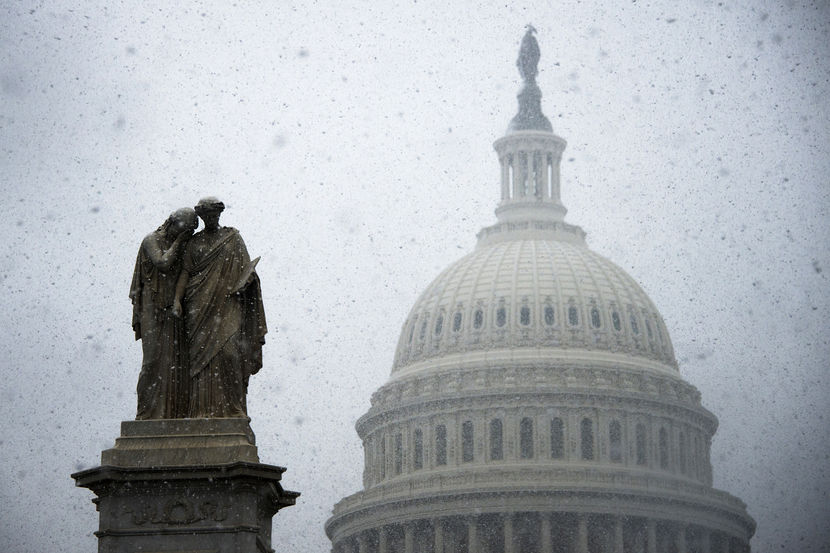Almost immediately after President Joe Biden’s inauguration, Democratic leaders realized that the budget reconciliation process would be needed to pass an ambitious COVID relief package. There was no great mystery as to why: Senate Republicans left no doubt that they intended to kill the plan with a filibuster, and reconciliation would allow the Democratic majority to pass a proposal with 50 votes.
On Tuesday, Senate Dems took the first step, agreeing to start the debate on a budget resolution that would make it possible to pass a $1.9 trillion package. Last night, they took the second step.
The Senate early Friday passed a budget resolution that kicks off the special reconciliation process Democrats are using to pass a new round of Covid relief. The resolution passed in a 51-50 party-line vote just after 5:30 a.m. ET, with Vice President Kamala Harris casting one of her first two tie-breaking votes to help Democrats approve the measure.
As nearly everyone involved concedes, the process is absurd to the point of satire. Senate Majority Leader Chuck Schumer (D-N.Y.) launched the debate on Tuesday, which culminated with a 15-hour overnight marathon known as a “vote-a-rama”: a silly name for an exasperating process in which, thanks to arcane budget rules, senators can push non-binding votes on literally hundreds of politicized amendments.
Those amendments must be deemed “germane” — which is to say, relevant — to the budgetary process, and while Republicans filed more than 800 amendments, only about 40 received votes. Fifteen hours later, senators mercifully ended the process.
(On a personal note, I get up at 5 a.m. eastern, and was amazed to see senators were still at it. A tip of the hat to the Capitol Hill reporters who managed to stay awake long enough to cover the whole thing.)
As for the practical effects of the overnight developments, NBC News’ report added, “Some of the amendments adopted by the Senate include grants for restaurants and bars affected by the pandemic and a provision to prevent tax increases on small businesses during the crisis.”
Senators also agreed to limit direct-aid checks for high earners — it passed 99 to 1 — but the amendment didn’t include any specific income levels.
What happens now? Because the budget resolution was amended, it now heads to the Democratic-led House, with the Rules Committee taking up the matter in about an hour. By all accounts, the bill will pass the chamber, though it’s not yet clear when, and some weekend work is a possibility.
Once it clears the House, the budget resolution will not go to the White House for Biden’s signature, because the president plays no formal role in the legislative budgetary process.














